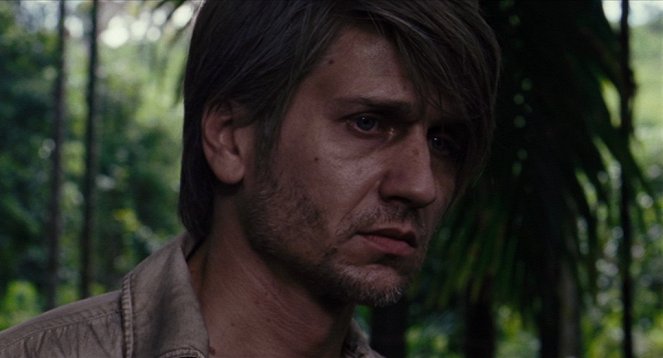Juonikuvaukset(1)
Chantal Akerman has been an icon of feminist and experimental film since the 70s until her recent death on the 5th of October 2015. Almayer's Folly is her adaptation of Joseph Conrad's debut novel, which concerned a Dutch trader living in Malaysia. Transplanting the story from the 1890s to the 1950s, Akerman has brought the history of an extra half-century of colonialism and foreign intervention to bear on Conrad's tale, a story of cultural conflict, desire, and despair. Having married the adopted Malay daughter of the wealthy Captain Lingard in order to obtain an inheritance that has failed to materialize, Almayer has become isolated and bitter, trapped in his remote trading post, and investing all his emotional energy in his own beloved daughter, Nina. But, haunted by feelings of racial and cultural alienation and harboring hatred towards her father, Nina has no intention of providing him with comfort or companionship. (Umeå European Film Festival)
(lisää)Arvostelut (2)
The subdued light of the long Akerman-style shots mixes the shadows of the characters' dull figures with the night of reason into which the main character falls. What is the director's last fictional film about? It is about the eternal European chimera of its own superiority, the impulse for Citius, Altius, or Fortius (faster, higher, stronger), which reduces people and nature to mere symbols and materials of its own success and dream of victory. It is about the rebellion of one of the objects of this madness, which is intertwined with a family rebellion - the effort not to appear in a stranger's dream, even if it was the father. Is all this not just intertwined with the rebellion of youth, escaping from the authority of the father/culture toward love, regardless of profit and prestige - wanting to live in a world that is true to itself? Isn't this supposed to be the fate of the entire third world, which was not even named in the film? How should we interpret the opening scene, which uncovers hopes of defiant gestures: a young mixed-race woman loses hope despite Frank Sinatra's voice - was it the lover's killer who took it away from her, or was it Sinatra himself, revealing the end of a different illusion, not European but the illusion of the youth of the third world about their own world? The minimalism of already dead characters imitates the death of Almayer's world and the world of his daughter. Not to forget means to die, and to forget means to lose the meaning of life - in this space between two deaths, the main heroine is captured in the opening scene, in which her gesture sadly beautifully misses the situation to which she no longer belongs.
()
Chantal Akerman may not be my favorite filmmaker, but it must be acknowledged that she knows how to make films and how to present them. In this case, in a weird way where on the one hand you feel like it's a plot-driven film, but at the same time not much actually happens. But the environment and the state of the human mind are captured well.
()
Kuvagalleria (26)
Kuva © Cinéart


Mainos